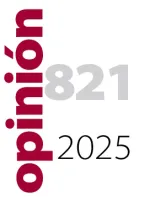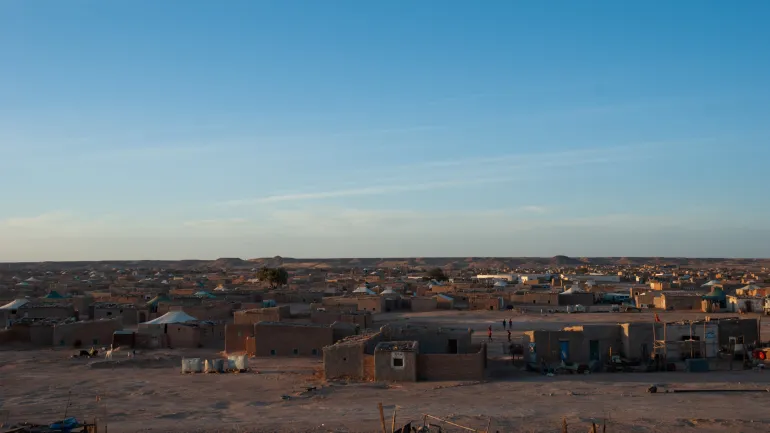Can Trump make a deal on Western Sahara?


As it happened in his first presidential tenure, Donald Trump’s return to the White House could have an impact in the latent conflict between Morocco and the Western Sahara’s pro-independence Polisario Front that goes back to 1975. Since the end of the cease-fire in 2020, tensions have mounted in the region but a UN-led negotiated deal is still possible. However, it would require effective pressure from the US and the European Union to encourage Morocco and the Polisario to compromise.
As it approaches its fiftieth anniversary, the Western Sahara conflict continues unabated. Morocco has worked successfully to expand international support for its claims to the desert territory. Yet this has not brought the conflict closer to an end, with the Sahrawi national liberation movement, Polisario Front, now threatening to further expand its armed struggle for independence. As the conflict continues to fuel an uptick in regional insecurity and drive tensions between Morocco and Algeria (Polisario’s patron), a Western Sahara peace agreement remains vital for the future of the region. President Trump’s return to the White House could help catalyse a deal. To be successful though, future US engagement will have to factor in Sahrawi self-determination in line with international law.
Trump has already given Morocco a major win during his first presidential tenure by recognising Moroccan sovereignty over Western Sahara in December 2020. The move unlocked the subsequent normalisation of relations between the north African kingdom and Israel. It also set the stage for further Moroccan diplomatic gains, including from France’s President Emmanuel Macron who declared the “present and future” of Western Sahara to lie under Moroccan sovereignty. The French president also urged French investment in the territory, following the example of Spain which has also boosted investment there as part of its own effort to improve ties with Morocco.
Alongside this, Morocco is attracting increasing widespread support for its autonomy proposal for Western Sahara. Presented in 2007, it envisaged the establishment of a local regional administration – the Saharan Autonomous Region (SAR) – under Moroccan sovereignty. While the SAR would have the powers to create its own laws and regulate domestic issues such as infrastructure and social policy, Rabat would retain control over Western Sahara’s natural resources, foreign relations, currency, as well as external and internal security. The Moroccan government continues to insist that its autonomy plan is the only solution it will accept for Western Sahara. It is now hoping to win the final international seal of approval for this during an international conference to be held in the UAE in April.
But the Polisario, which administers much of the eastern half of Western Sahara, continues to reject Morocco’s autonomy plan, as do many Sahrawis. Although the Sahrawi movement issued its own proposal in 2007 for economic and security cooperation between Western Sahara and Morocco, it continues to demand full independence as the only way of fulfilling Sahrawi self-determination. After years of deadlock in the UN-led peace process, mounting frustrating eventually led the Polisario to resume armed attacks against Moroccan forces in Western Sahara in November 2020.
While UN-led diplomacy remains stuck, a negotiated deal is still possible. But it will require effective pressure from the US and Europe to encourage Morocco and the Polisario to compromise with the aim of drawing them into what negotiators call a zone of agreement.
To date, Morocco has rebuffed requests to expand further on its 2007 proposal prior to the resumption of negotiations. But as the UN’s Personal Envoy of the Secretary-General for Western Sahara, Staffan de Mistura, told the UN Security Council in October 2024, countries have a right to understand what the autonomy plan they are being asked to support entails. This includes for example safeguards to ensure respect for Sahrawi national rights and self-governance.
There are also reasons to ask whether Rabat is truly committed to its own plan. To date, it has not taken any steps to implement its vision of Western Saharan autonomy. This may in part be explained by the desire of the Moroccan monarchy to centralise power. Nevertheless, Morocco will have to show greater flexibility to move forward.
Given its previous pro-Moroccan track record, the Trump White House can positively influence Moroccan calculations to support an agreement with the Polisario. To do this, the incoming US administration should press Morocco to engage on the details of its autonomy proposal to provide a credible form of self-determination by the people of Western Sahara.
The Polisario too will need to show greater pragmatism. The Sahrawi group has similarly rebuffed international requests to develop its 2007 proposal, banking instead on military pressure to force Moroccan concessions. With Morocco gaining in strength on the regional and international stage, this military strategy will not succeed. A more promising path has been the Polisario’s successful legal challenges against the inclusion of Western Sahara in Morocco’s relations with the EU. But despite great potential this legal strategy is also unlikely to fully overcome the deeply entrenched geopolitical, economic and ideological factors that underpin Morocco’s continued control.
With growing questions about the future of MINURSO, the UN’s peacekeeping mission in Western Sahara, and de Mistura’s threat to resign unless there is positive diplomatic engagement by the parties, the current diplomatic window for a deal may soon close. This will play in Morocco’s favour while potentially leaving Sahrawis with a narrowing pathway to statehood. As one senior Polisario diplomat recently recognised: “time is not on our side.”
The Polisario does not need to abandon its dream of Sahrawi self-determination. Any deal relating to Western Sahara’s future will ultimately need to be put to the Sahrawi people in a national referendum. But it does need to rethink how self-determination can best be achieved given the current geopolitical realities. Here too, the US could provide significant economic and political incentives to encourage the Polisario to accept a negotiated model of self-governance that lies between outright independence and full integration into Morocco. This could take many forms. In his briefing to the Security Council, de Mistura raised the example of Greenland which is a self-governing autonomous territory of Denmark. Sahrawis could also look to pacific Islands such as the Cook Islands and Niue, which are self-governing states in free association with New Zealand.
There may also be a potential deal to be struck between the US and Algeria that would reduce tensions with Morocco while generating Algerian pressure on the Polisario to accept a compromise solution. In meetings, Algerian officials have expressed a desire to ease tensions with Morocco and advance regional normalisations, but emphasise that this will require positive movement in the UN-led political track towards securing Sahrawi self-determination in whatever shape.
Resolving the Western Sahara conflict would offer considerable advantages to the European Union which finds itself caught between its political desire to deepen its economic partnership with Morocco on one hand, and on the other its legal obligation to both treat Western Sahara as a separate country and respect Sahrawi right to self-determination. Of particular significance would be hammering out an economic cooperation agreement that would allow for Western Sahara to remain part of the EU’s trading relation with Morocco with the consent of the Polisario.
By working with the Trump administration and UN to reach a new trading relation with Western Sahara in line with the CJEU’s ruling, the EU could help create important diplomatic momentum towards a negotiated solution that can meet both Sahrawi and Moroccan aspirations. But this will require Brussels to think strategically, something that it has so far shown itself reluctant to do when it comes to this conflict.
Keywords: Morocco, Polisario, Sahara, Trump, UN, EU, Algeria, sovereignty, SAR, autonomy, self-determination
All the publications express the opinions of their individual authors and do not necessarily reflect the views of CIDOB or its donors